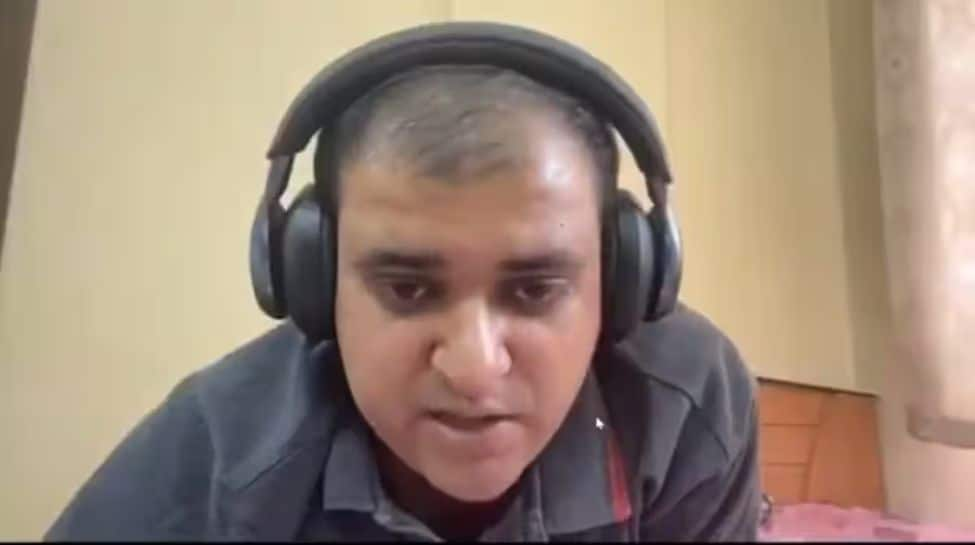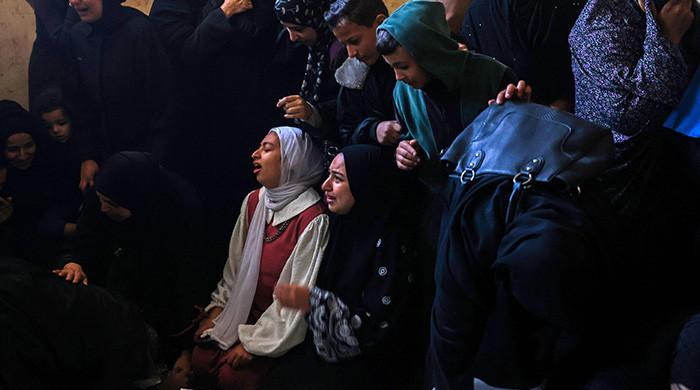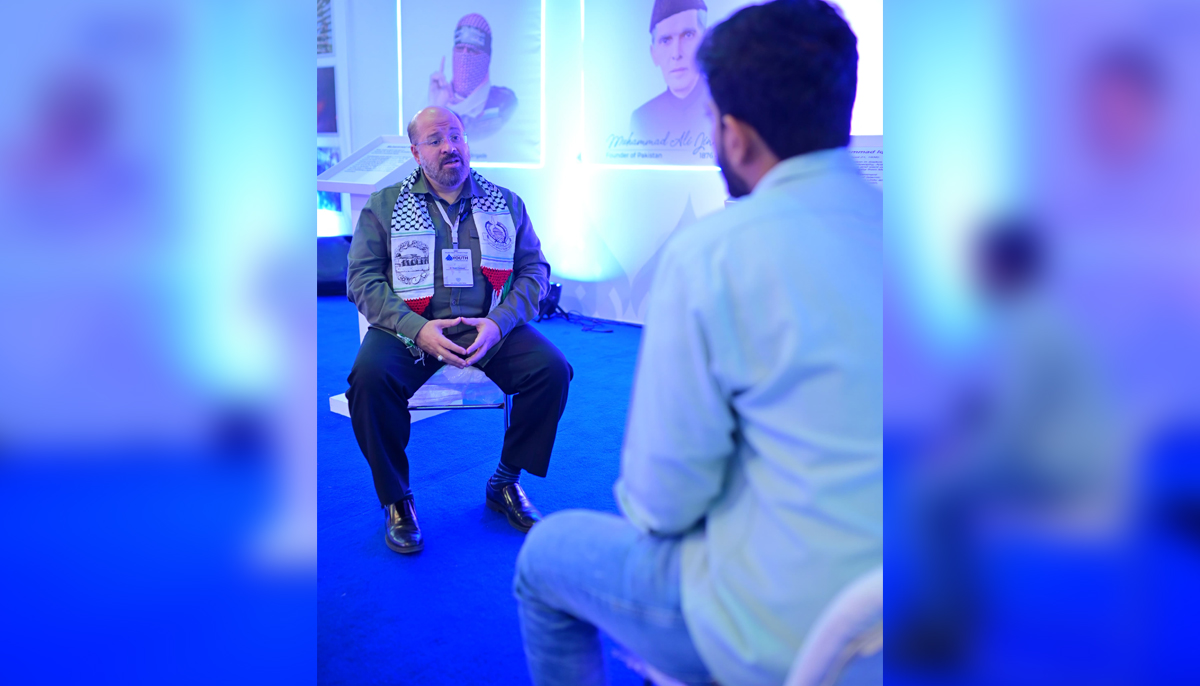The Muslim nations should not send their armies to fight alongside Palestinians against Israel, but stand by their words to end the ongoing war that has killed and injured thousands, a Hamas spokesperson told Geo.tv in an exclusive interview.
Israel has killed more than 22,000 Gazans in three months, mostly women and children, and it is bent on “eliminating” Hamas, while its offensive is expected to continue throughout the ongoing year.
The most deadly attack in history by Israel was launched in response to Hamas’s October 7 operation — “Toofan Al-Aqsa” — in which 1,200 Israelis were killed and 240 taken hostages, some of which have been released.
Seemingly furious over the Israeli onslaught, Oragnisation of Islamic Cooperation (OIC) and an Arab-Islamic summit slammed the attacks, noting that “war crimes and barbaric and inhumane massacres by the occupation government” should end.
However, Hamas spokesperson Khalid Qadoumi told Geo.tv that mere statements weren’t enough as the humanitarian crises, which existed pre-October 7, was spiralling and getting worse with each passing day.
“Do what you [OIC] said; you said that you want to stop the war. It’s 57 countries. They have huge capability to pressurise the Israeli government, international community to stop the war,” he said in the interview in Karachi.
“They have huge and tremendous diplomatic maneuvers through which they can open the Rafah gate for the influx of humanitarian aid,” he said, lamenting that only 100 trucks of aid were coming into Gaza — and that too, with the order of Netanyahu.
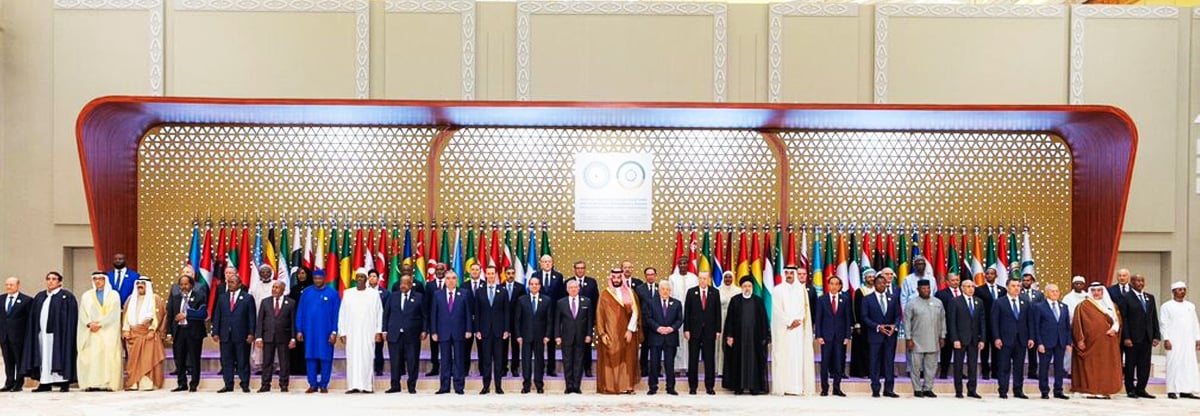
The Hamas spokesperson said that the Gazans were not demanding the Muslim nations to send in their armies and wage war against Israel, but only to follow up on what they had claimed to do.
“…we are not able to understand, is it really that we don’t have that status to pressurise the Israeli side or the international community to be able to make water available for the common man in Gaza. That is a big question,” Qadoumi wondered.
Why October 7?
The date chosen for the Hamas attack, a major strike that baffled Israeli intelligence, sparked speculation about its deeper significance.
Although Qadoumi did not give clarity on the timing, he did say it was a “technical measure”, and the Hamas fighters on the ground “could tell you about it”. He also noted that a motive behind the attack was “to surprise people”.
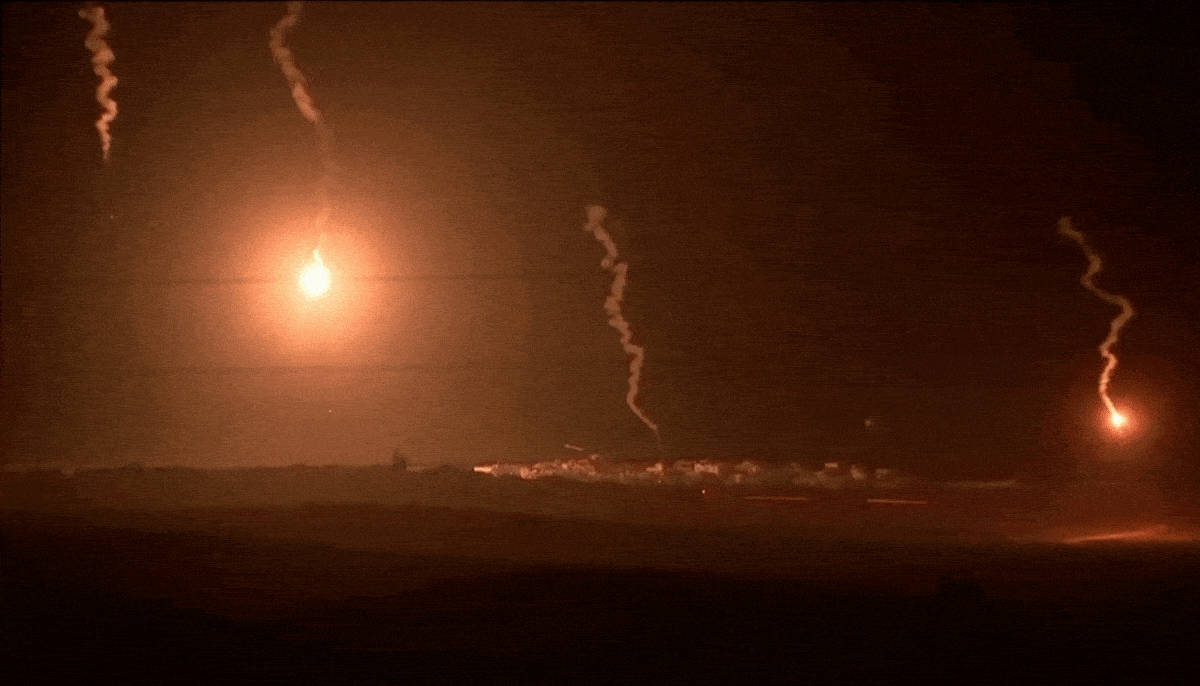
Terming October 7 as a response to the brutality that Israel has been subjecting Palestinians to for the better part of seven decades, he said: “It wasn’t a wonder, because we, for the past 75 years, have been suffering under these war crimes.”
“October 7 is a response of our people [to Israel],” he said.
When questioned about whether Hamas had calculated Israel’s response, he noted: “They’ve been doing [this brutality] for the past 75 years.”
“Let’s leave out October 7. Even before it, in the West Bank, do they have Hamas over there? Do they have weapons? Is ‘Toofan Al-Aqsa’ there? Then why are there 300 martyrs in West Bank? Why is Israel martyring our youth? Why are 4,600 [martyrs over there]?”
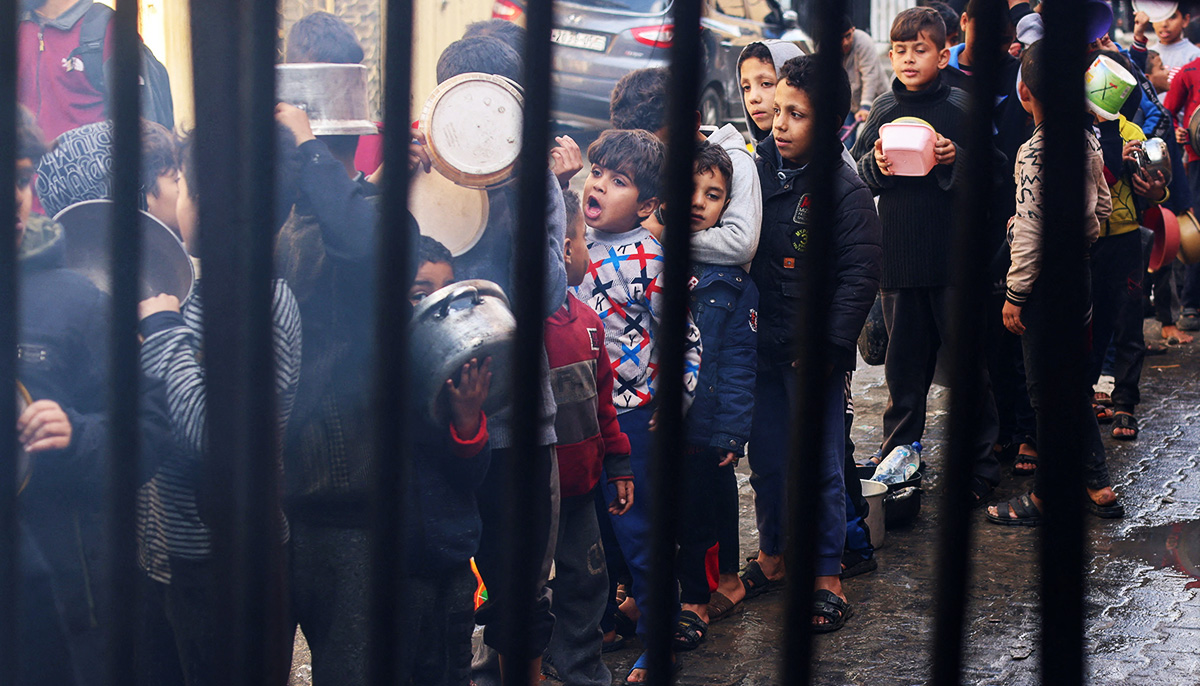
Qadoumi noted that Israel did not need the “Toofan Al-Aqsa” or the October 7 attacks as a reason to bombard Gaza. “Before Oct 7, for one Israeli, around 150-300 Palestinians were being martyred due to Israel’s torture and besiegement.”
Saudi-Israel possible normalisation
Before October, top officials from Riyadh and Tel Aviv — Saudi Arabia’s Crown Prince Mohammed bin Salman (MBS) and Israeli Prime Minister Benjamin Netanyahu — had said that they were closer to establishing ties, in line with other Gulf nations.
“Every day, we get closer” to a normalisation deal, MBS told US broadcaster Fox News in September, and within a gap of days, Netanyahu told CNN that Tel Aviv would “likely” strike an agreement with Riyadh.
However, the United States’ efforts to broker a deal between the two sides failed as Hamas launched a surprise attack on Israel.
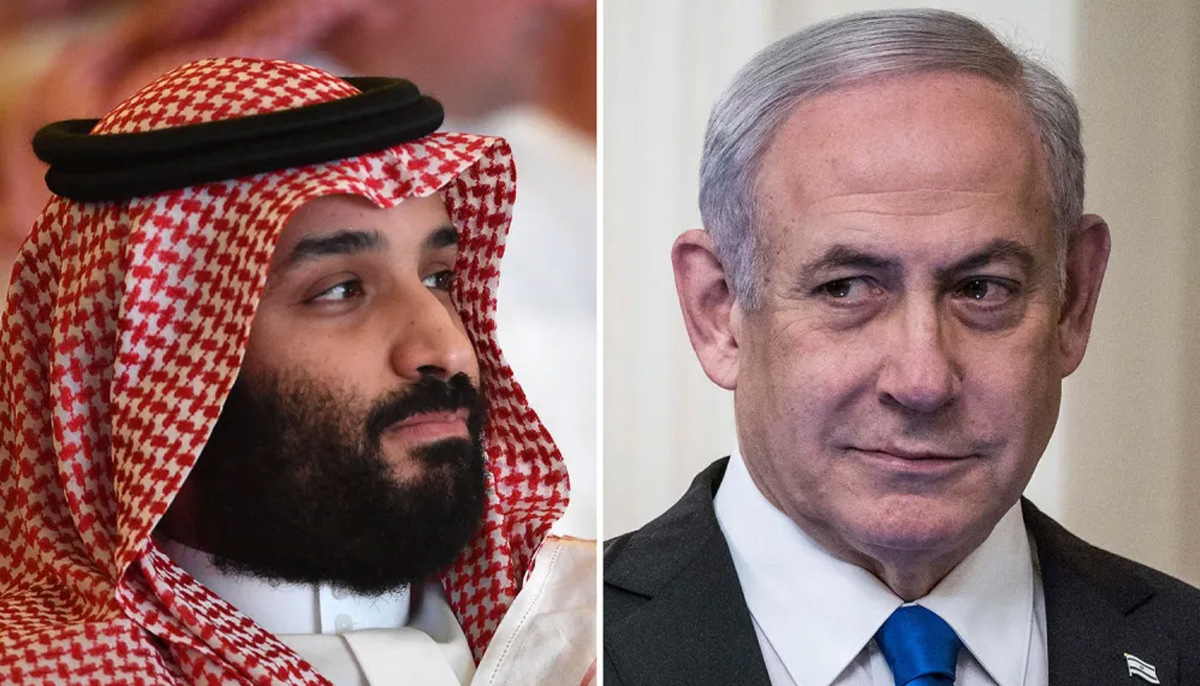
In the interview, Qadoumi explained that the group’s October 7 attack was well-planned, and obviously, with such a calculated move, they had “targets” in mind.
“The world was surprised, we were surprised, by the manner in which they attacked. But why not? If you think that this normalisation [deal] between Saudi Arabia and Israel ended, then it’s well and good,” Qadoumi told Geo.tv.
“They were trying to sell out Palestinians. It was a dangerous plan. Because of October 7, the entire political approaches have been put to bed. You can [say] that it might be a target, or maybe it was one of their targets,” the spokesperson said.
Boycotts and protests
Since Israel launched its relentless onslaught on Gaza, people across the globe — including the United Kingdom, UAE, Turkey, and Spain — held protests, seeking an end to the war.
The spokesperson backed the protests and boycotts, in which people are not using products or eating from fast food chains that are related to Israel or support Tel Aviv’s attacks.
“Public opinion matters a lot. Sometimes people say that public opinion doesn’t matter. Why? Today, due to public opinion, there’s a boycott, not due to some fatwa [Islamic decree]. You gained awareness. It’s not only emotion,” he noted.
“You are now thinking that I’m sitting at [a Western fast-food chain] and thinking that this money will be used as a bullet against a Palestinian child, you then boycott. You aren’t against any culture; you are speaking practically. If these brands are helping Israel, it means you’re also helping them in this genocide.”
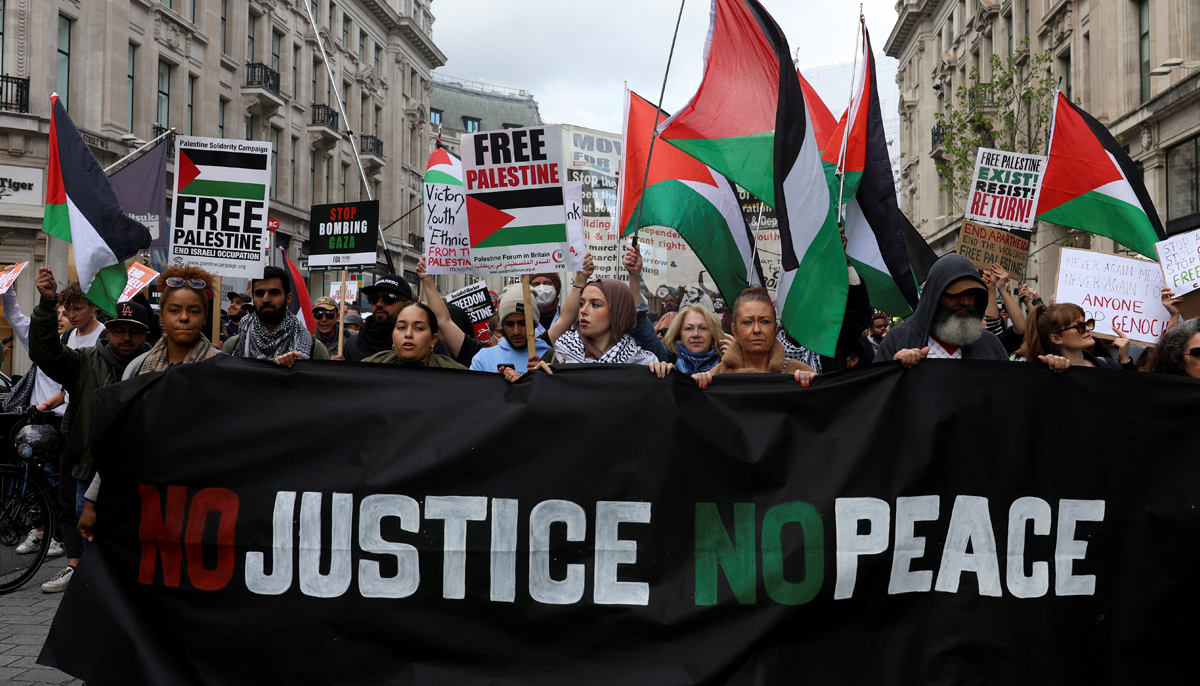
Also, Qadoumi said, rallies are being held in the United States, which led to a humanitarian pause as President Joe Biden was losing popularity ahead of the presidential elections due to his support of war crimes, military and financial aid to Israel.
“It is important for you to remain on the streets — to boost the morale of the people. I’m not talking about Hamas; I’m talking about common Palestinians. Those poor people; 60% of their residential [area] has been destroyed.”
“When Pakistani people will send temporary houses to Khan Younis’ camp, then they will feel that they aren’t alone. Their Muslim brothers are supporting them. It will boost their morale,” he said, also asking to spread awareness about the Palestinian cause and how international courts could be moved to hold Israel accountable.
‘Israel has ceased to exist’
Qadoumi, when asked about the expected time frame of the war’s end, said: “This is a very complex question. Why? Because Israel’s hegemony ended on October 7. Its hegemony is not what it used to be pre-October 7.”
The Hamas spokesperson said Israelis were leaving the land and moving abroad to countries like Germany, Poland, US, etc. He noted that Israel would not be able to bear the war for too long as for the first time in history, it was borrowing to keep the war going.
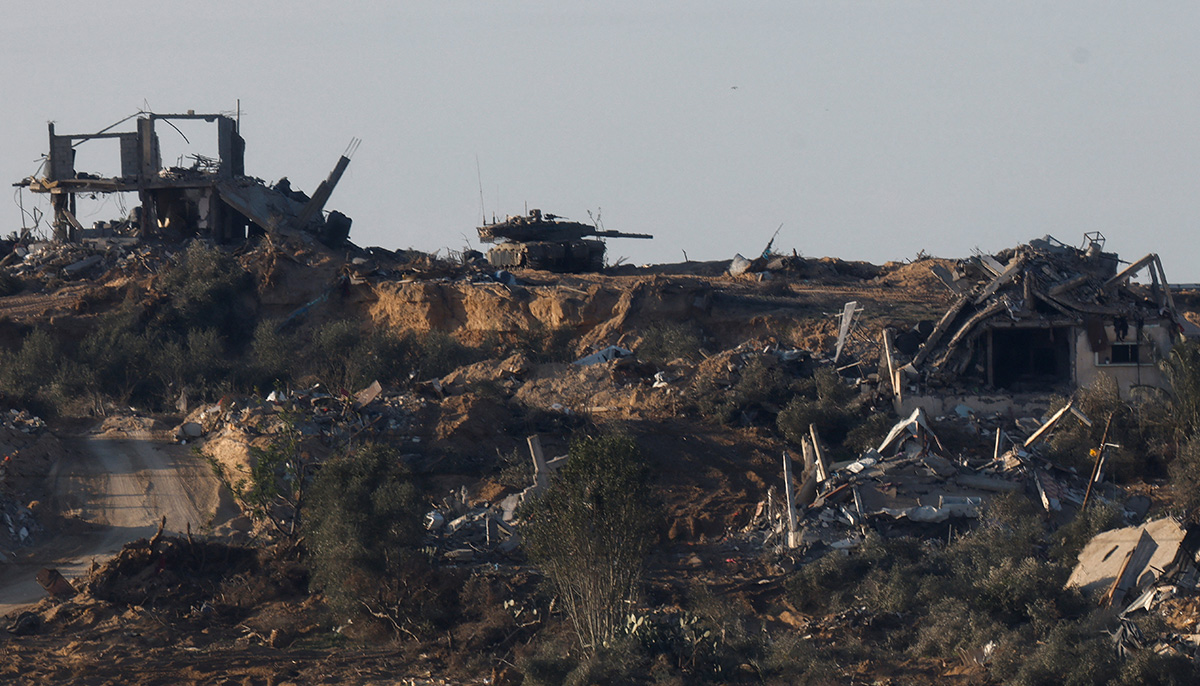
“For the first time, IT, technology, and medical companies are moving out of Tel Aviv as there is no guarantee over there. Their people are exiting because the promise of ‘Milk and Honey’ has not been fulfilled. It is a land of oppression, aggression, and lack of security,” he said.
He said despite protests against the war and the flight of businesses from Israel, the “corrupt” leaders were adamant about continuing their attacks on Gaza.
“Today, hundreds of thousands of people in Israel are on the streets against Netanyahu, and Gantz. They are protesting in front of the Israeli defence ministry daily to stop this war. The change has come,” he said.
“They are not stopping it because what will he tell the courts? What will he tell the investigation committees about his targets? Is besieging the Al-Shifa hospital a military achievement? What military achievement can Israel put in front of their nation? Nothing,” he added.
“Neither could they destroy Hamas nor our will. Our people still stand steadfast and are with us in Gaza. Alhamdulillah, Israel has ceased to exist. But now, it is up to the Muslim ummah to get justice for Palestinians,” Qadoumi concluded.
— Khawaja Burhan Uddin is a staffer at Geo.tv





























